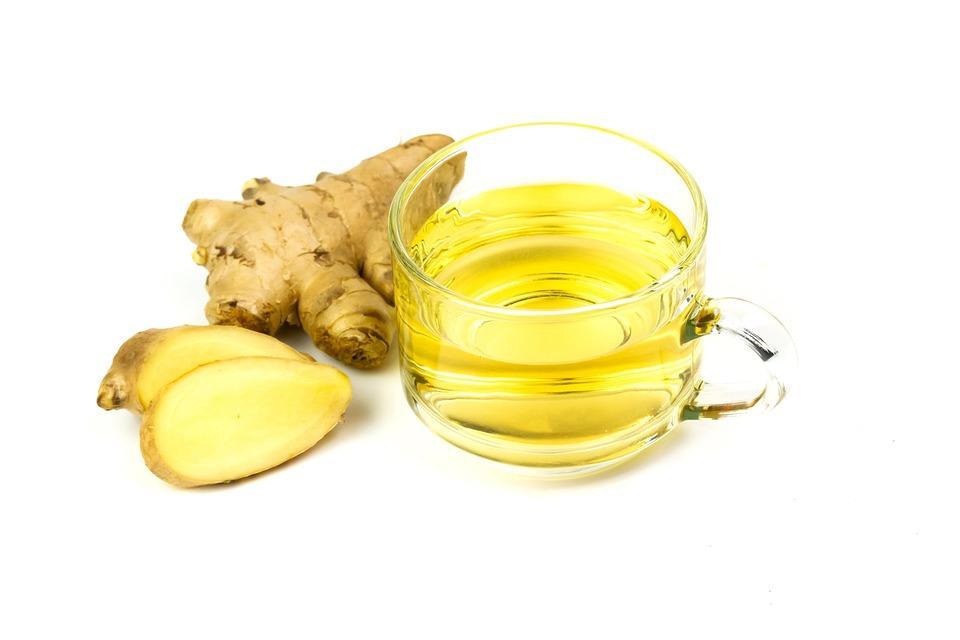Ginger root boosts your digestion naturally, and it’s time to harness its incredible powers. If you’ve ever felt bloated after a meal or struggled with an upset stomach, you know how important it is to have a healthy digestive system. Ginger has been used for centuries as a remedy for digestive issues, and today, science backs up what many of us have experienced firsthand.
Contents
What is Ginger Root and Why Does It Matter?
Ginger root is the underground stem of the ginger plant, scientifically known as Zingiber officinale. It’s not just a spice; it’s a powerhouse of health benefits. Rich in bioactive compounds, ginger has anti-inflammatory, antioxidant, and digestive properties that can transform how your body processes food. When it comes to your digestion, understanding the role of ginger can be a game-changer.
Why should you care? Because your digestive health impacts your overall well-being. A well-functioning digestive system means better nutrient absorption, more energy, and improved mood. Plus, who doesn’t want to enjoy meals without discomfort? Let’s dive into the seven compelling reasons why ginger root can be your best ally in achieving a happier, healthier gut.
1. Reduces Nausea
Ginger has long been celebrated for its ability to combat nausea. Whether it’s motion sickness, morning sickness during pregnancy, or nausea induced by chemotherapy, ginger can provide relief. Studies have shown that ginger can be as effective as some prescription medications for alleviating nausea.
- How it works: Ginger contains compounds called gingerols and shogaols, which interact with the digestive system to ease feelings of nausea.
2. Eases Indigestion and Bloating
If you often feel uncomfortably full after meals, ginger could be your secret weapon. It stimulates the production of digestive enzymes, which helps your body break down food more efficiently. This can reduce the uncomfortable feeling of fullness and bloating.
- Practical tip: Consider brewing a cup of ginger tea after heavy meals to aid digestion and soothe your stomach.
3. Stimulates Digestive Enzymes
Your body needs digestive enzymes to break down food into nutrients. Ginger stimulates the secretion of these enzymes, making it easier for your body to absorb what it needs. This can help prevent digestive disorders and enhance your nutritional intake.
- Why it matters: Enhanced nutrient absorption means more energy and better overall health.
4. Fights Inflammation
Chronic inflammation is linked to various digestive disorders, including irritable bowel syndrome (IBS) and inflammatory bowel disease (IBD). Ginger root boasts potent anti-inflammatory properties that can help alleviate these conditions.
- Research insight: Studies indicate that ginger can suppress inflammatory markers in the body, making it a natural ally for those battling digestive inflammation.
5. Promotes Gut Health
A healthy gut microbiome is essential for overall health. Ginger acts as a prebiotic, feeding the beneficial bacteria in your gut. This not only supports digestion but also bolsters your immune system.
- Gut health tip: Incorporate ginger into your smoothies or salads for an added boost to your gut flora.
6. Relieves Constipation
Constipation can be uncomfortable and frustrating. Ginger helps to stimulate bowel movements by promoting gastrointestinal motility. It encourages the movement of food through your digestive tract, making it less likely for you to experience the discomfort of constipation.
- Daily habit: Try adding fresh ginger to your morning routine, whether in a smoothie or as a tea, to keep things moving.
7. Reduces Gas and Cramping
Do you experience gas or cramping after meals? Ginger root can help alleviate these uncomfortable symptoms. Its carminative properties can help reduce gas buildup and soothe your digestive tract.
- Smart solution: A warm cup of ginger tea can be especially comforting after a meal, calming your stomach and reducing discomfort.
How to Incorporate Ginger into Your Diet
Now that you know how ginger root boosts your digestion naturally, you might be wondering how to add it to your meals. Here are some delicious and easy ways to incorporate ginger into your diet:
- Fresh Ginger Tea: Boil slices of fresh ginger in water for a soothing tea.
- Smoothies: Toss in a small piece of fresh ginger for a spicy kick.
- Soups and Stir-Fries: Add fresh or powdered ginger to your favorite recipes for extra flavor and health benefits.
- Pickled Ginger: A great accompaniment to sushi, it’s delicious and beneficial.
- Ginger Shots: Blend ginger with lemon and a bit of honey for a quick health boost.
Bottom Line
Ginger root boosts your digestion naturally by reducing nausea, easing bloating, stimulating digestive enzymes, fighting inflammation, promoting gut health, relieving constipation, and reducing gas and cramping. This powerful root is not only versatile and flavorful; it’s a natural remedy that can enhance your quality of life.
So why not make ginger a staple in your kitchen? Whether you enjoy it fresh, in tea, or as a spice, embracing ginger can lead to a happier, healthier digestive system.
FAQ
How much ginger should I consume daily for digestive health?
A daily dose of about 1-2 grams of ginger is effective for most people. You can start with a small amount and adjust based on how your body responds.
Are there any side effects of consuming ginger?
While ginger is safe for most people, excessive consumption can lead to heartburn or digestive discomfort. Always listen to your body.
Can I take ginger supplements instead of fresh ginger?
Yes, ginger supplements are available, but fresh ginger is often more effective due to its higher concentration of active compounds. Always consult a healthcare provider before starting any new supplement.
Embrace the power of ginger and watch as your digestive health transforms!
Get Your FREE Natural Health Guide!
Subscribe now and receive our exclusive ebook packed with natural health tips, practical wellness advice, and easy lifestyle changes, delivered straight to your inbox.




